Related Research Articles

Sir Walter Scott, 1st Baronet, was a British historian, novelist, poet, and playwright. Many of his works remain classics of European and Scottish literature, notably the novels Ivanhoe (1819), Rob Roy (1817), Waverley (1814), Old Mortality (1816), The Heart of Mid-Lothian (1818), and The Bride of Lammermoor (1819), along with the narrative poems Marmion (1808) and The Lady of the Lake (1810). He had a major impact on European and American literature.
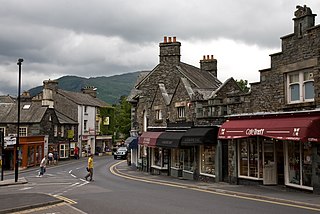
Ambleside is a town and former civil parish in the Westmorland and Furness district of Cumbria, England. Within the boundaries of the historic county of Westmorland and located in the Lake District National Park, the town sits at the head of Windermere, England's largest natural lake. In 2020 it had an estimated population of 2596.
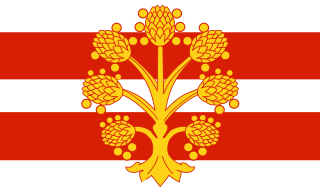
Westmorland is a historic county in Northern England.

Grasmere is a village and former civil parish, now in the parish of Lakes, in the Westmorland and Furness district of Cumbria, England, and situated in the centre of the Lake District and named after its adjacent lake. Grasmere lies within the historic county of Westmorland. The Ambleside and Grasmere ward had an estimated population of 4,592 in 2019. William and Dorothy Wordsworth, the 'Lake Poets', lived in Grasmere for 14 years and called it "the loveliest spot that man hath ever found."
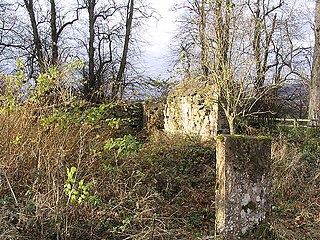
David Calderwood was a Church of Scotland minister and historian. Calderwood was banished for his nonconformity. He found a home in the Low Countries, where he wrote his great work, the Altare Damascenum. It was a serious attack on Anglican Episcopacy. Patiently and perseveringly Calderwood goes over the whole system, referencing the Bible, the Fathers, and the Canonists. Calderwood lived to see the principles for which he had suffered, and which he had defended, in complete ascendency. He was present at the Glasgow Assembly in 1638, and saw episcopacy and the high church liturgy swept away. He breathed his last at Jedburgh, a fugitive from his parish of Pencaitland; and they laid him in the churchyard of Crailing, where the first years of his ministry were spent.
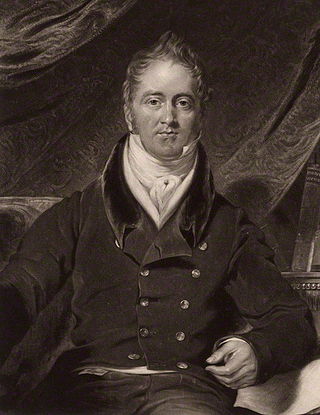
John Murray was a Scottish publisher and member of the John Murray publishing house. He published works by authors such as Sir Walter Scott, Lord Byron, Jane Austen and Maria Rundell.
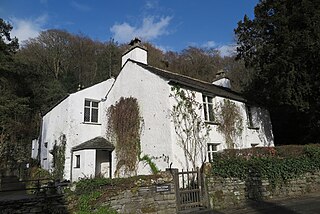
Dove Cottage is a house on the edge of Grasmere in the Lake District of England. It is best known as the home of the poet William Wordsworth and his sister Dorothy Wordsworth from December 1799 to May 1808, where they spent over eight years of "plain living, but high thinking". During this period, William wrote much of the poetry for which he is remembered today, including his "Ode: Intimations of Immortality", "Ode to Duty", "My Heart Leaps Up" and "I Wandered Lonely as a Cloud", together with parts of his autobiographical epic, The Prelude.
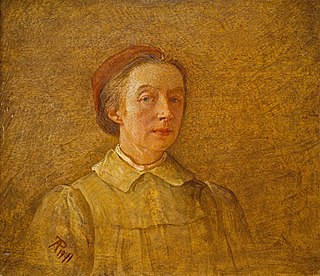
Phoebe Anna Traquair was an Irish-born artist, who achieved international recognition for her role in the Arts and Crafts movement in Scotland, as an illustrator, painter and embroiderer. Her works included large-scale murals, embroidery, enamel jewellery and book illuminations. In 1920, she was elected as an honorary member of the Royal Scottish Academy.

Thomas ThomsonFRSE FSA Scot was a Scottish advocate, antiquarian and archivist who served as Principal Clerk of Session (1828–1852) and as secretary of the literary section of the Royal Society of Edinburgh (1812–20).
Alexander Campbell (1764–1824) was a Scottish musician and miscellaneous writer.

Sir John Graham Dalyell PSSA was a Scottish advocate, antiquary and naturalist

Alexander Cowan was a Scottish papermaker and philanthropist. He was the 13th child and third surviving son of Charles Cowan and Marjory Cowan nee Fidler He was also a cousin and friend of Thomas Chalmers, the prominent Scottish minister. Through his business he was a friend and associate of the publisher Archibald Constable and, through Constable, an associate of Sir Walter Scott. The Cowan Family owned the huge Valleyfield paper-works in Penicuik in Midlothian and Sir Walter Scott refers to Alexander's brother Duncan as "Honest Duncan the Paper Manufacturer" in The Fortunes Of Nigel. Alexander was a trustee who helped Sir Walter Scott out of Bankruptcy. He took over the running of the paper works when the Government sold it back to the family in 1820.
Margaret Calderwood was a Scottish diarist just after the Jacobite rising of 1745. She wrote of her journeys through England to Brussels, but this work was not published until the 19th century.
Brathay Trust is a youth-development charity with its head office and residential centre based at Brathay in Cumbria, England. Founded in 1946 by Francis C. Scott, the charity is based at the Brathay Hall and estate near the town of Ambleside. The charity's mission is to transform the lives of young people in need. Methods include outdoor education and experiential learning, but also delivers people and organisation development courses for adults. In 2007, the trust began holding the Brathay Windermere Marathon, a now annual charity marathon.
Events from the year 1737 in Scotland.
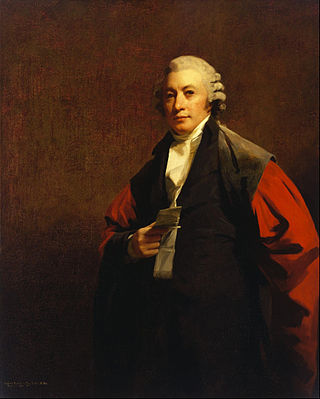
Robert Hodshon Cay FSSA LLD was Judge Admiral of Scotland overseeing naval trials. He was husband of the artist Elizabeth Liddell, father of John Cay FRSE and maternal grandfather of James Clerk Maxwell.

Mary Hardy was an 18th-century English diarist. She depicted commercial and working life in the countryside, being actively engaged in her husband's farming and brewing business. Her 500,000-word record, compiled daily from 1773 to 1809, reveals the exacting, time-pressured nature of pre-mechanised work for the middle and labouring classes.
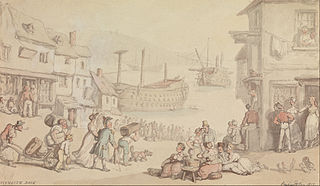
Janet Schaw, traveller and diarist, was born between 1730 and 1740 in Lauriston Edinburgh. The third cousin, once removed of Sir Walter Scott, she was born into an old Scottish family. Little is known about her early life, but during her travels to the Antigua, St. Christopher, North Carolina, and Portugal in 1774–1776, she kept a journal, "blessedly unaware that as she jotted down her opinions and descriptions that she was a writing for posterity a document of rare interest and importance, now which as far as we know, and especially as it bears on the Scottish phase of American colonial history, is unique". After her return to Britain she lived in Edinburgh and Plymouth, where she met King George III and Queen Charlotte. Janet died in 1800.

Rotha Mary Clay was a British self-taught historian and social worker.
Hannah Chapman Backhouse was an English diarist and Quaker minister. Her work in America was influential in strengthening evangelicalism in American Quakerism.
References
- 1 2 Elizabeth Ewan, ed. (2018). The new biographical dictionary of Scottish women. Edinburgh. p. 189. ISBN 978-1-4744-3629-8. OCLC 1057237368.
{{cite book}}: CS1 maint: location missing publisher (link) - ↑ Thomas, Andrew (3 February 2019). "Family members return to the home of their ancestors near Ambleside". The Westmorland Gazette. Retrieved 30 January 2023.
- ↑ "Cheers to Brathay Hall's historic lounge bar!". Brathay Trust. 28 February 2020. Retrieved 30 January 2023.
- ↑ "Description and image of Harden's drawing". The British Museum. British Museum. Retrieved 30 January 2023.
- ↑ "Catalogue of Archives and Manuscripts Collections | National Library of Scotland | NLSMSS | Drawings and journals chiefly of John Harden, a landowner from Tipperary and an accomplished amateur water-colourist, and of his wife Jessy, the daughter of Robert Allan, the Edinburgh banker, and an assiduous diarist". manuscripts.nls.uk. Retrieved 2023-01-27.